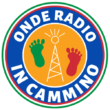About
Hi! I am Emilio
Welcome to my adventure travel
I got into radio because of my aunt’s old valve radio. Still remember the smell when she turned it on. She’d tune in to foreign stations, and as a kid, I’d wonder who those voices belonged to.
On my birthday, can’t remember which one, maybe when I was ten, my dad’s friend asked what gift I wanted. Shy at first, then blurted out, “A radio! A radio!” He was thrilled and said, “Let’s go pick one.”
So, we grabbed the cheapest from the store, ‘cause all I cared about was what came out of it.
Then came the CB radio craze. Dad wasn’t into it, but my uncle was! He set up a rig in his car. My cousin and I were baffled: how could people chat through that little box and a wire antenna? That’s when I got hooked on radio waves. Aunt’s radio only received, but this one could talk too!
Years passed, I drifted from radio, worked odd jobs, even lived on a sailboat for a year! But then, while cleaning the garage, stumbled upon my old CB gear! That sparked a fire—I had to get licensed.
So, I hit the books, and the more I studied, the more I fell in love, even started building antennas!
Got my license, bought a used rig, and then discovered QRP. Since I love hiking and exploring, it was a perfect fit!
That’s my story. Oh, and I’ll be testing a new antenna soon!
Studying CW, hope to get on the airwaves soon!
Catch ya later, 73 de EMILIO IU8QTM

Frequently Asked Questions
1. What are amateur radio operators, and why are they important?
Amateur radio operators, often referred to as “hams,” are individuals who use radio frequencies for non-commercial communication and experimentation. They are licensed by regulatory authorities and use their skills and equipment to communicate across the globe, often engaging in various forms of radio activities like contests, emergency communications, and technical experimentation. Their importance lies in their ability to provide reliable communication during emergencies when other systems might fail, contribute to public service, and advance the field of radio technology through innovation and research.
4. How does amateur radio contribute to emergency preparedness and response?
Amateur radio plays a crucial role in emergency preparedness and response by providing an alternative communication method when conventional systems are disrupted or unavailable. Amateur radio operators are often involved in disaster relief efforts, helping to relay information and coordinate resources during crises. Their ability to set up portable and self-sufficient stations in remote or affected areas ensures that vital communications can continue, supporting both local communities and broader relief operations.
2. What inspired you to start your journey in amateur radio and hiking?
My passion for amateur radio and hiking was sparked by a desire to combine my love for technology with my love for the outdoors. I wanted to explore how radio communication can enhance my hiking adventures and vice versa, leading to a unique blend of activities that keeps me both mentally and physically engaged.
5. How do you prepare for your portable radio activations?
Preparation involves careful planning of both equipment and location. I ensure that all my radios and accessories are in working order, pack necessary tools and spare parts, and research the best spots for optimal signal coverage. Additionally, I stay informed about the weather conditions and any potential challenges at my chosen location.
3. What types of radios do you use for your portable operations?
For my portable operations, I use a variety of radios including the Xiegu G90 for its balance of power and portability, the USDX+ Red Corners for its affordability and versatility, and the Quansheng UV-K5 for its durability and reliability. Each radio serves a specific purpose depending on the conditions and needs of my outdoor activities.
6. What types of radios do you use for your portable operations?
For my portable operations, I use a variety of radios including the Xiegu G90 for its balance of power and portability, the USDX+ Red Corners for its affordability and versatility, and the Quansheng UV-K5 for its durability and reliability. Each radio serves a specific purpose depending on the conditions and needs of my outdoor activities.
